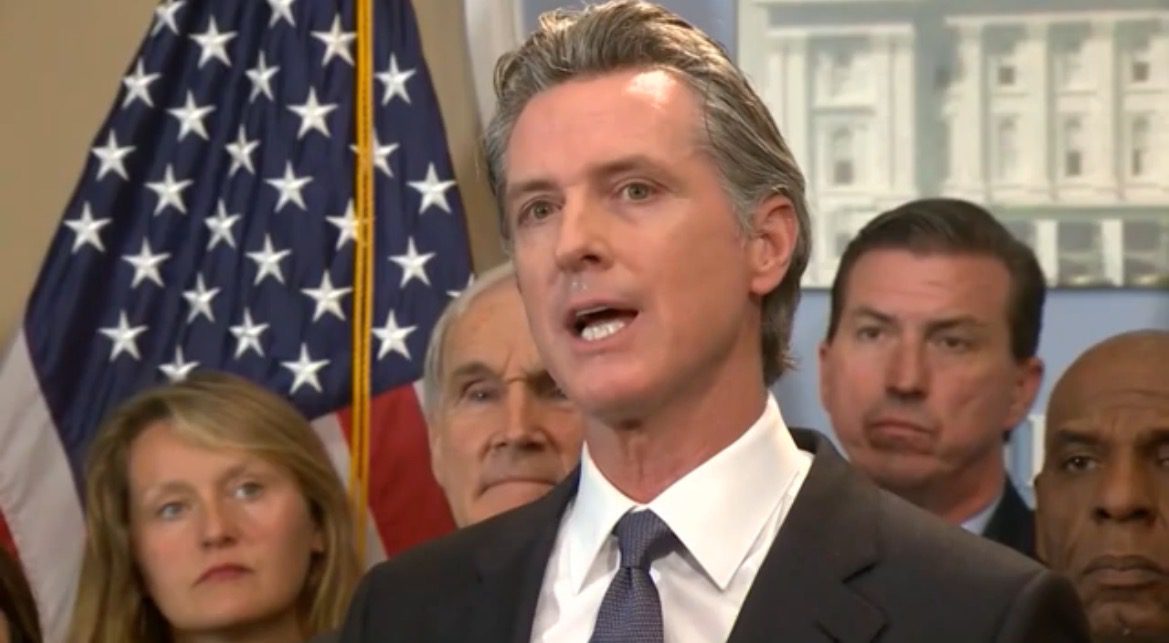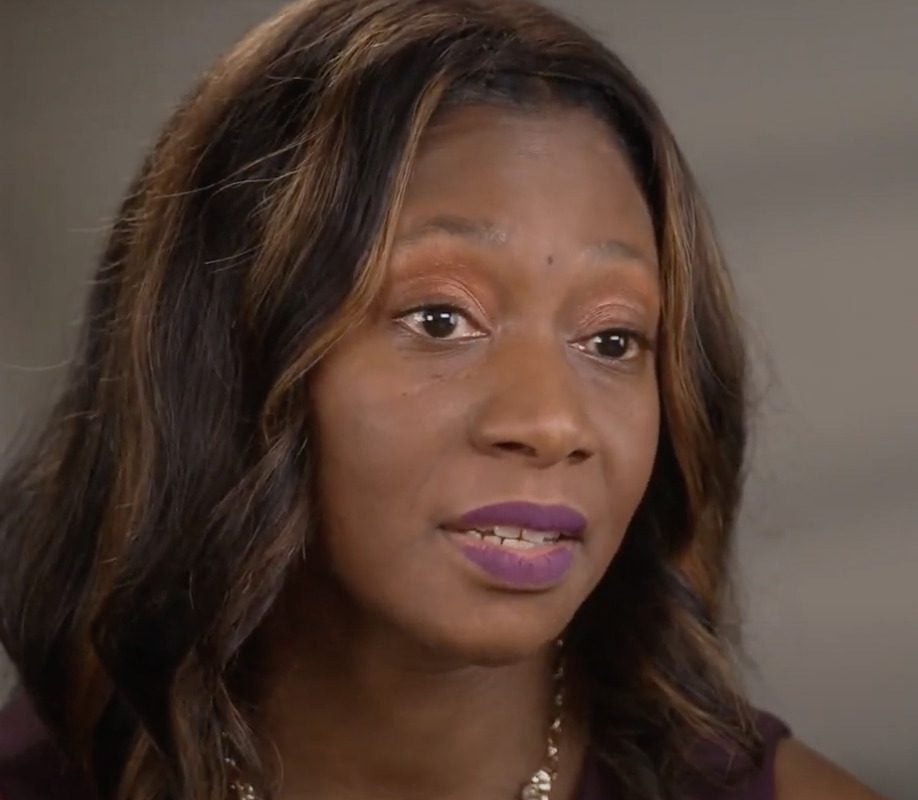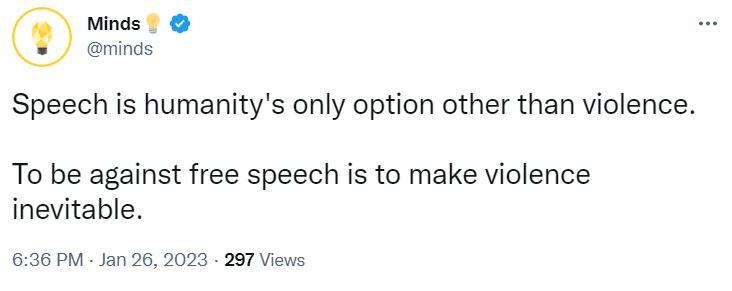Not sure where you are finding these for 169-190.00. I am finding them on google for 1400 on up..Anyone can buy an AED - Philips Heartsmart. They run around $169-190. When I bought mine, they were $750 (taking care of elderly mom at the time with heart issues). Hard excuse not to have one now if you have the means, very simple training is included in CPR class. The machine reads the heart rhythm for you and determines whether rhythm is present/shockable.
I wouldn't be surprised if the "SADS" hears do not set off (are not shockable) an AED; so are pretty much DRT (or DOS). I don't know the circumstances from Damar Hamlin - but my guess is that reason for 10 minutes of CPR is that he initially had no electrical activity - EPI was likely given via ET tube which alone with compressions induced a shockable rhythm to occur. Super rare but that's why its in the protocol for ACLS.
Join the Hide community
Get access to live stream, lessons, the post exchange, and chat with other snipers.
Register
Download Gravity Ballistics
Get help to accurately calculate and scope your sniper rifle using real shooting data.

Install the app
How to install the app on iOS
Follow along with the video below to see how to install our site as a web app on your home screen.
Note: This feature may not be available in some browsers.
You are using an out of date browser. It may not display this or other websites correctly.
You should upgrade or use an alternative browser.
You should upgrade or use an alternative browser.
PortaJohn
- Thread starter Lowlight
- Start date
-
- Tags
- sniper's hide

Judge Issues Preliminary Injunction Blocking Newsom's Covid 'Misinformation' Law
A California judge on Wednesday issued a preliminary injunction blocking Governor Gavin Newsom’s Covid ‘misinformation’ law. A new California law, known as Assembly Bill 2098, would allow the Medical Board of California to ‘discipline’ doctors who spread Covid ‘misinformation.’ Of course ‘Covid...
This case needs to go to SCOTUS ASAP! This is exactly what WEF-Davos 2023 was talking about - "misinformation and hate speech" will be blocked in the US "soon"; a.k.a. your First amendment is GONE especially when it matters the most. The placement of these Soros-backed judges higher and higher up, including now in SCOTUS, means they need to act now!
You are correct - my apologies. When I looked at Google the first things I saw images of the package I purchased -they were for the case only. Will change my post accordingly.Not sure where you are finding these for 169-190.00. I am finding them on google for 1400 on up..
Not only was my price off, but I just spoke to the American Heart Association, because they basically negotiate "Group Buys". I was informed that AEDs after the pandemic are in such short supply there is a 12 month backlog on receiving items after purchase!
Last edited:
Do we really need to see Paul wearing Nancy's bra and panties with a hammer sticking out his ass ....... This guy how ever deviant and gay he is , is one of the savviest stock traders on the planet. Nice call dumping google right before the antitrust suit by the DOJ .I'm sure they've "lost" it, or or the file's been "corrupted" by now...
I need to put my tinfoil hat on, because I just realized this backlog in AEDs the American Heart Association said occurred "after the pandemic" - well that was 3 years ago. No increase in production to fit accordingly? WOW.
increase production and the business's profit margin might go down due to increasing the supply. Business doesn't want to expand their production line to offset the cost (maybe)I need to put my tinfoil hat on, because I just realized this backlog in AEDs the American Heart Association said occurred "after the pandemic" - well that was 3 years ago. No increase in production to fit accordingly? WOW.

Mike Rowe warns government enabling millions of men to quit working: 'Not letting them fail'
Mike Rowe warned that millions of men have left the workforce and spend time watching television instead of looking for jobs, suggesting government handouts were to blame.
Seriously?? This person is already a Federal Judge -and has NO clue wants our Constitution!!
(Article 2 is who can be eligible for Presidency, Article 5 is how the Constitution can be amended through Congress.)
The sad thing is, all these incompetent judges ARE being seated because the Senate has majority.

Sen. Johnson Calls For Congress to Investigate Vaccine Manufacturers and Covid Vax Approval Process in Response to Project Veritas' Exposé on Pfizer | The Gateway Pundit | by Cristina Laila
Senator Ron Johnson on Thursday called for Congress to investigate vaccine manufacturers and the Covid vax approval process in response to Project Veritas’ explosive undercover video exposing Pfizer’s alleged plans to ‘mutate’ the Covid virus.
The scariest part: right at the 1:03 this guy says "You do selective mutations to make it (the virus) more potent". He said it.
Heaven help us.
increase production and the business's profit margin might go down due to increasing the supply. Business doesn't want to expand their production line to offset the cost (maybe)
It certainly appears to lend to "Flipping" of said items.

JUST IN: Serial Liar Adam Schiff Announces Bid For Feinstein's Senate Seat | The Gateway Pundit | by Cristina Laila
Serial liar Adam Schiff on Thursday announced a bid for Dianne Feinstein’s US Senate seat in California.
Do we really need to see Paul wearing Nancy's bra and panties with a hammer sticking out his ass ....... This guy how ever deviant and gay he is , is one of the savviest stock traders on the planet. Nice call dumping google right before the antitrust suit by the DOJ .
Yes, yes we do. And we also want to see the video cam of the DUI arrest, and who his "passenger"in his Porsche was while Nancy was away.
Brought back memories of Medic training, US Army, Ft. Sam Houston, 1968.correct chest compressions of at least two inches with minimal interruption
I recall that to achieve correct depth of chest compression, we were told the sternum might crack!
Seriously?? This person is already a Federal Judge -and has NO clue wants our Constitution!!
(Article 2 is who can be eligible for Presidency, Article 5 is how the Constitution can be amended through Congress.)
The sad thing is, all these incompetent judges ARE being seated because the Senate has majority.
I’ve mentioned article 2 section 1 multiple times over the last few months. It specifically details how a president is elected. That didn’t happen which means Biden and everything he has done and will do is illegal. Senator Kennedy while charming, is a hypocrite considering he doesn’t take the constitution seriously either. Nobody does. They all play along. Every single one at any level of government.
Man Arrested After Driving Porsche From Texas to Kentucky, Allegedly Using a Propane Torch and Bolt Cutters to Break Into Maker’s Mark Distillery
This guy must love his whiskey. -
It Doesn't Matter How Well Trump Polls, The System Is Rigged
Unless the managerial elite and Big Tech are brought to heel, it doesn’t matter how much better Trump polls than Biden.
We're not voting our way out, even with a majority of votes.
It Doesn't Matter How Well Trump Polls, The System Is Rigged
Unless the managerial elite and Big Tech are brought to heel, it doesn’t matter how much better Trump polls than Biden.thefederalist.com
FIFYWe're not voting our way out,evenespecially with a majority of votes.
If he gets her seat, does he also get her driver?
JUST IN: Serial Liar Adam Schiff Announces Bid For Feinstein's Senate Seat | The Gateway Pundit | by Cristina Laila
Serial liar Adam Schiff on Thursday announced a bid for Dianne Feinstein’s US Senate seat in California.www.thegatewaypundit.com

Biden Regime Working With Big Tech And Academia To Adapt Military-Grade AI Used Against ISIS To Target Americans Worried About Vaccine Safety and Election Integrity
The Biden Regime has consistently demonstrated that conservatives are their primary enemies and will utilize various tools to silence them. A report today from Just The News claims the Regime is now adopting tactics formerly used against the Islamic State to censor conservatives. According to...
If you are not paying attention the the Memphis situation where the officers beat the guy to death, you should. They are releasing the video tomorrow evening and it is supposed to be pretty bad. It has the potential to kick off another round of “mostly peaceful” protests.
As stated earlier. It's all theater for votes. It'll never go through the senate or the potatoes desk.
They could have done it with Trump and didn't. Why? Because orange man bad
They could have done it with Trump and didn't. Why? Because orange man bad
Vote republicant!!
GOP House Members Introduce Bill to Repeal National Firearms Act
A group of Republican House members put forth legislation Wednesday to repeal the National Firearms Act (1934), thereby stripping the Bureau of Alcohol, Tobacco, Firearms, and Explosives of the ability to turn law-abiding gun owners into criminals.www.breitbart.com
Thank god no honkies involved.If you are not paying attention the the Memphis situation where the officers beat the guy to death, you should. They are releasing the video tomorrow evening and it is supposed to be pretty bad. It has the potential to kick off another round of “mostly peaceful” protests.
The follow-up scene: The Pfizer person caught discussing "mutating COVID variants" states he was just lying on a third date (like "normal guys do"). He then got physical attempting to steal their I-pad while screaming "you shoved me" and tried to use the race card when calling police..
Last edited:
If you are not paying attention the the Memphis situation where the officers beat the guy to death, you should. They are releasing the video tomorrow evening and it is supposed to be pretty bad. It has the potential to kick off another round of “mostly peaceful” protests.
5 black cops beat him. There is no story here. The articles I've seen are strangely devoid of specifics.
Rodney King all over. The first mistake they made in the Rodney King beating, was not immediately shooting him when he grabbed the cop's gun. Rodney King was doped to the gills to the point he couldn't be "physically" subdued.
5 black cops beat a black suspect to death. So....black cops bad?
The follow-up scene: The Pfizer person caught discussing "mutating COVID variants" states he was just lying on a third date (like "normal guys do". He then got physical attempting to steal their I-pad while screaming "you shoved me"...
So....he is a faggot and thought he was on a date? Nice.
5 black cops beat him. There is no story here.
The SWAT team that unloaded on the disabled white guy who was following orders and with his hands up in the air SHOULD be.
Last edited:
So....he is a faggot and thought he was on a date? Nice.
Not just "a date". This was his "third date". All of the Project Veritas captures have been accomplished under the guise of being on a date - ah the allure of "getting some". Those Project Veritas reporters go above and beyond, (and maybe even down) to get their stories.
The divider in chief has struck again:

 www.foxnews.com
www.foxnews.com
Let's Balkanize a bit more shall we?

'White' federal workers would no longer include Middle Eastern, North African heritage under new Biden plan
The Biden administration on Thursday proposed several changes to the way the federal government collects data on the race and ethnicity of federal workers.
Let's Balkanize a bit more shall we?
Sadly this is so Nazi like it's truly scary. Let's tattoo that on people so that everybody knows and for good measure let's put it on foreheads. Then let's pass laws against hate speach and use that very tattoo as a hate symbol. Far fetched? 40 years ago...yes...today, quite possible (> 75%).
So....he is a faggot and thought he was on a date? Nice.
Yep.
All that bloviating and he got no dic for his dollar.
Last edited:
While I would normally agree with you, there is something about the way this one is being handled that has my spidey senses tingling. It’s like they are trying to rev the protests up by telling folks it’s going to be bad, so please don’t destroy the city. It sets it up for another incident to take place that does involve white officers.5 black cops beat him. There is no story here. The articles I've seen are strangely devoid of specifics.
Rodney King all over. The first mistake they made in the Rodney King beating, was not immediately shooting him when he grabbed the cop's gun. Rodney King was doped to the gills to the point he couldn't be "physically" subdued.
5 black cops beat a black suspect to death. So....black cops bad?
I did Nazi this coming.
On my last doctor visit he asked about the COVID jab? Nope. The flu jab? Nope. The shingles jab? Nope. A couple others that I don't recall? Nope.
Are you anti vaccine? Nope. The only time I have been sick in my life was in the Corps when I got the flu shot. I have been around hundreds of people that have the Vid and I have been fine. I am around hundreds of people every year that have the flu and never get it. My children went to the public germ factories (schools) and brought home the crud and I never got it. Nobody is taking into account for natural immunity. I have no comorbidities so why would I volunteer to be a lab rat. He said, It's just questions that I have to ask and I agree.
I figured that they were already tracking after the questions
On my last doctor visit he asked about the COVID jab? Nope. The flu jab? Nope. The shingles jab? Nope. A couple others that I don't recall? Nope.
Are you anti vaccine? Nope. The only time I have been sick in my life was in the Corps when I got the flu shot. I have been around hundreds of people that have the Vid and I have been fine. I am around hundreds of people every year that have the flu and never get it. My children went to the public germ factories (schools) and brought home the crud and I never got it. Nobody is taking into account for natural immunity. I have no comorbidities so why would I volunteer to be a lab rat. He said, It's just questions that I have to ask and I agree.
I figured that they were already tracking after the questions
I did Nazi this coming.
On my last doctor visit he asked about the COVID jab? Nope. The flu jab? Nope. The shingles jab? Nope. A couple others that I don't recall? Nope.
Are you anti vaccine? Nope. The only time I have been sick in my life was in the Corps when I got the flu shot. I have been around hundreds of people that have the Vid and I have been fine. I am around hundreds of people every year that have the flu and never get it. My children went to the public germ factories (schools) and brought home the crud and I never got it. Nobody is taking into account for natural immunity. I have no comorbidities so why would I volunteer to be a lab rat. He said, It's just questions that I have to ask and I agree.
I figured that they were already tracking after the questions
Yeah theyve been tracking since they started "pushing" vaccines.
I’m like you in that I can count on one hand how many times I’ve been sick in my adult life and still have fingers left over.I did Nazi this coming.
On my last doctor visit he asked about the COVID jab? Nope. The flu jab? Nope. The shingles jab? Nope. A couple others that I don't recall? Nope.
Are you anti vaccine? Nope. The only time I have been sick in my life was in the Corps when I got the flu shot. I have been around hundreds of people that have the Vid and I have been fine. I am around hundreds of people every year that have the flu and never get it. My children went to the public germ factories (schools) and brought home the crud and I never got it. Nobody is taking into account for natural immunity. I have no comorbidities so why would I volunteer to be a lab rat. He said, It's just questions that I have to ask and I agree.
I figured that they were already tracking after the questions
IIRC. He has a life sentence with no parole. It's commiefornia so no death penalty. He warned the prison authority that he was going to do it.
Pretty good story about all of it if you want to look into it.
Pretty good story about all of it if you want to look into it.
Maybe we should send some money to his account.
Every time...?
Unlike you and Darnyankee, I was sick an awful lot for years. I had Covid early in 2020, and enjoyed a very long stint where I didn't get sick. I retired and my health improved more in August of 2020. I helped and cared for a couple folks suffering Covid in late '20, early '21. I maintained my resistance until the summer of '21, when I began coming down with some of the strangest shit I've ever had. I was several months before I learned this directly coincided with all my fucking neighbors getting the jab. Neighbors I "used" to spend a lot of time with. I try to avoid direct contact with them as much as possible now. Every time I get "neighborly" I end up sick as fuck for a week or two.I’m like you in that I can count on one hand how many times I’ve been sick in my adult life and still have fingers left over.
Last edited:

Doctor Who Claimed Obesity Can't Be Treated With Diet and Exercise Tapped for Role in USDA's Dietary Guidelines Advisory Committee
Dr. Fatima Cody Stanford Dr. Fatima Cody Stanford, who specializes in obesity medicine at Mass General Health in Boston, has been appointed to the Biden’s Administration’s USDA panel which determines diet guidelines. USDA announced the appointment of 20 nationally recognized scientists to serve...
just a remembered story. had a friend my age who happened to be jewish. his parents came over here (to NYC) in mid 20s from russia in time for the depression. his father was a cobbler. it took my friend and his brother years to later convince their father that there really was a depression. he didn't believe it because there were no wagons being driven thru town every morning collecting bodies,you could get free soup and food by standing in line a few hours,he could find work carrying his big leather sowing machine around town on his back. pay attention to those who have been there in a communist country. of course those indoctrinated in government schools will never heed those warnings.
Similar threads
- Replies
- 1
- Views
- 589

